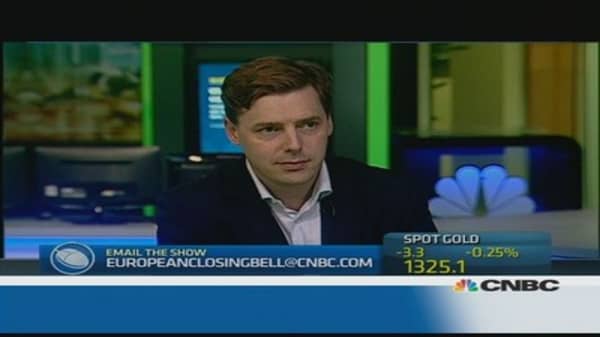Barclays' cash call on Tuesday, aimed at boosting its capital strength and meeting another hefty mis-selling charge, could bode ill for other U.K. banks such as Lloyds, analysts said.
(Read more: Barclays plans $9 billion cash call after mis-selling hit)
U.K. bank stocks took a tumble after Barclays' 5.8 billion pound ($8.8 billion) rights issue, breaking a yearlong rally in which Barclays, Lloyds and Royal Bank of Scotland shares rallied 118 percent, 179 percent and 74 percent, respectively, according to numbers from City Index.
Rumors that Barclays would announce a right issue surfaced over the weekend, but markets still rocked on the news that it was setting aside a further 2 billion pounds ($3 billion) to meet mis-selling claims, on top of the 3.5 billion pounds ($5.3 billion) already allocated.
Barclays said it was assigning 1.35 billion pounds ($2.05 billion) extra to meet claims relating to PPIs (payment protection insurance) and 650 million pounds ($990 million) extra for those relating to insurance rate hedging products.
(Read more: UK banks' scandal bill now costliest ever)
Markets now await half-year earnings from Lloyds, RBS and HSBC on Thursday, Friday and Monday, respectively, to learn whether or not other banks will also have to make extra provisions to boost capital levels, or meet mis-selling claims.
"Barclays has taken 2 billion pound additional mis-selling charges. … This reads negatively for Lloyds (sell) and RBS (hold)," said Ian Gordon, a U.K. bank analyst at Investec, on Tuesday.
Citi strategists Andrew Coombs and Ronit Ghose warned that both Lloyds and RBS might need to make further provisions for mis-selling claims.
"Barclays has utilized 58 percent of its PPI provision, versus Lloyds' 73 percent and RBS' 68 percent, which would seem to imply Lloyds and RBS may yet need to take additional conduct charges, albeit claims at both have been slowing," they said in a research note out on Tuesday.
Gordon said that HSBC could also face additional charges for PPI and interest swap claims, but said that Lloyds was "by far the most exposed on that issue". He added that Lloyds' charges were likely to be in the "hundreds of millions," rather than the $1.35 billion figure faced by Barclays.





